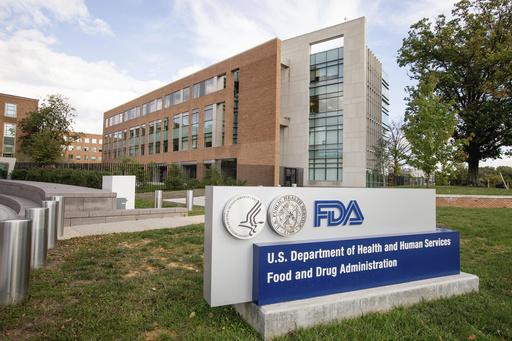WASHINGTON — The recent push by the Trump administration to reduce the federal workforce has now impacted the Food and Drug Administration (FDA), resulting in the termination of several newly hired employees who assess the safety of various products, including food ingredients and medical devices.
On Saturday, probationary employees within the FDA were informed that their positions were being eliminated, as reported by three FDA staff members who requested anonymity due to the sensitivity of the situation. The exact number of job cuts remains uncertain, but the layoffs seem to have targeted personnel in the agency’s divisions overseeing food, medical devices, and tobacco products, which also includes regulatory responsibilities related to electronic cigarettes. It is currently unknown whether those working on drug evaluations faced similar cuts.
Previously, some officials had anticipated that the U.S. Department of Health and Human Services (HHS) would terminate around 5,200 probationary employees across its various agencies. This information was alluded to in an audio recording from a meeting at the National Institutes of Health. HHS manages multiple health organizations, including the FDA, Centers for Disease Control and Prevention (CDC), and others.
Reportedly, the anticipated layoffs at the CDC alone could amount to approximately 1,300, although by early Sunday afternoon, only about 700 employees had received layoff notifications. Sources indicated that these layoffs did not include the young doctors and researchers dedicated to tracking diseases within the Epidemic Intelligence Service.
The FDA has its headquarters in the Maryland suburbs near Washington and maintains a workforce of nearly 20,000 individuals. The agency has been under scrutiny from newly appointed Health Secretary Robert Kennedy Jr., who previously accused it of conducting a “war on public health” by not sanctioning unverified treatments, including psychedelics and stem cell therapies. Additionally, Kennedy has advocated for the removal of thousands of chemicals used in U.S. food products. Despite this, the recent cuts have reportedly affected staff members tasked with reviewing the safety of new food additives.
An HHS representative did not provide immediate comments regarding this development on Sunday afternoon. Nearly half of the FDA’s budget—amounting to $6.9 billion—comes from fees collected from companies the agency oversees, enabling it to employ additional scientists to expedite product reviews. Therefore, the current job cuts do not lead to an overall reduction in governmental expenditures.
A former FDA official expressed concerns that the elimination of newer hires might be counterproductive, as these employees are often younger and possess more contemporary technical skills. The FDA’s workforce is predominantly older, with many staff members having served for 10 to 20 years, and a 2022 report from the Government Accountability Office highlighted ongoing recruitment and retention challenges faced by the agency, largely due to more lucrative offers available in the private sector.
“You want to bring in new blood,” emphasized Peter Pitts, who previously served as an FDA associate commissioner under President George W. Bush. “You need individuals with fresh perspectives, enthusiasm, and the latest technological insights.”
Mitch Zeller, a former FDA director for tobacco, criticized the firings as a tactic to “demoralize and undermine the spirit of the federal workforce,” noting that the cumulative effect of such actions could hamper the agency’s capacity to attract and retain skilled professionals.
In the past few years, the FDA’s inspection teams have faced significant challenges due to a surge in departures during the COVID-19 crisis, with many current inspectors being relatively recent hires. It remains unclear whether these inspectors were affected by the recent layoffs. FDA inspectors are tasked with overseeing numerous facilities related to food, drugs, tobacco, and medical devices globally, yet the agency has struggled with a backlog of about 2,000 uninspected drug facilities that had not been reviewed since before the pandemic. Furthermore, the inspection force has faced criticism for delays in addressing recent issues with certain products like infant formula, baby food, and eyedrops.
Copyright @2024 | USLive | Terms of Service | Privacy Policy | CA Notice of Collection | [privacy-do-not-sell-link]


